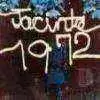Ernesto Guifaldes, M.D. of the Pontificia Unicersidad Catolica de Chile has sent me much information, is particularly knowledgeable in this area. If you have any questions about this subject, please contact Ernesto at: Open Original Shared Link
Celiac.com Sponsor (A12):
The following is a letter dated March 10, 1996, and was sent to the Presidents of the Episcopal Conferences from the Vatican. It represents the official position of the Catholic Church with regard to gluten and the Eucharist.
Your Eminence/Excellency:
In recent years, this Dicastery has followed closely the development of the question of the use of low-gluten altar breads and mustum as matter for the celebration of the Eucharist.
After careful study, conducted in collaboration with a number of concerned Episcopal Conferences, this Congregation in its ordinary session of June 22, 1994 has approved the following norms, which I am pleased to communicate:
- I. Concerning permission to use low-gluten altar breads:
- A. This may be granted by Ordinaries to priests and lay persons affected by celiac disease, after presentation of a medical certificate.
- Conditions for the validity of the matter:
- 1) Special hosts quibus glutinum ablatum est are invalid matter for the celebration of the Eucharist;
- 2) Low-gluten hosts are valid matter, provided that they contain the amount of gluten sufficient to obtain the confection of bread, that there is no addition of foreign materials, and that the procedure for making such hosts is not such as to alter the nature of the substance of the bread.
- II. Concerning permission to use mustum:
- A. The preferred solution continues to be Communion per intinctionem, or in concelebration under the species of bread alone.
- B. Nevertheless, the permission to use mustum can be granted by Ordinaries to priests affected by alcoholism or other conditions which prevent the ingestion of even the smallest quantity of alcohol, after the presentation of a medical certificate.
- C. By mustum is understood fresh juice from grapes, or juice preserved by suspending its fermentation (by means of freezing of other methods which do not alter its nature).
- D. In general, those who have received permission to use the mustum are prohibited from presiding at concelebrated Masses. There may be some exceptions however: in the case of a Bishop or Superior General; or, with prior approval of the Ordinary, at the celebration of the anniversary of priestly ordination or other similar occasions. In these cases, the one who presides is to communicate under both the species of bread and that of the mustum, while for the other concelebrants a chalice shall be provided in which normal wine is to be consecrated.
- E. In the very rare instances of lay persons requesting this permission, recourse must be made to the Holy See.
- III. Common Norms:
- A. The Ordinary must ascertain that the matter used conforms to the above requirements.
- B. Permissions are to be given only for as long as the situation continues which motivated the request.
- C. Scandal is to be avoided.
- D. Given the centrality of the celebration of the Eucharist in the life of the priest, candidates for the priesthood who are affected by celiac disease of suffer from alcoholism of similar conditions may not be admitted to Holy Orders.
- E. Since the doctrinal questions in this area have now been decided, disciplinary competence is entrusted to the Congregation for Divine Worship and the Discipline of the Sacraments.
- F. Concerned Episcopal Conferences shall report to the Congregation for Divine Worship and the Discipline of the Sacraments every two years regarding the application of these norms.
With warm regards and best wishes, I am Sincerely yours in Christ.
![]()
The leader of the fight for Celiacs in the Catholic Church has recently died. Archbishop Derek Worlock of Liverpool was diagnosed in the 1980s with celiac disease and presented a strong case in Rome for celiac sufferers to be allowed to receive special hosts at Communion, which was reluctantly granted. He died of lung cancer on February 8, 1996.





.webp.f9013842ba68bce5402cf12786a57581.webp)

Recommended Comments